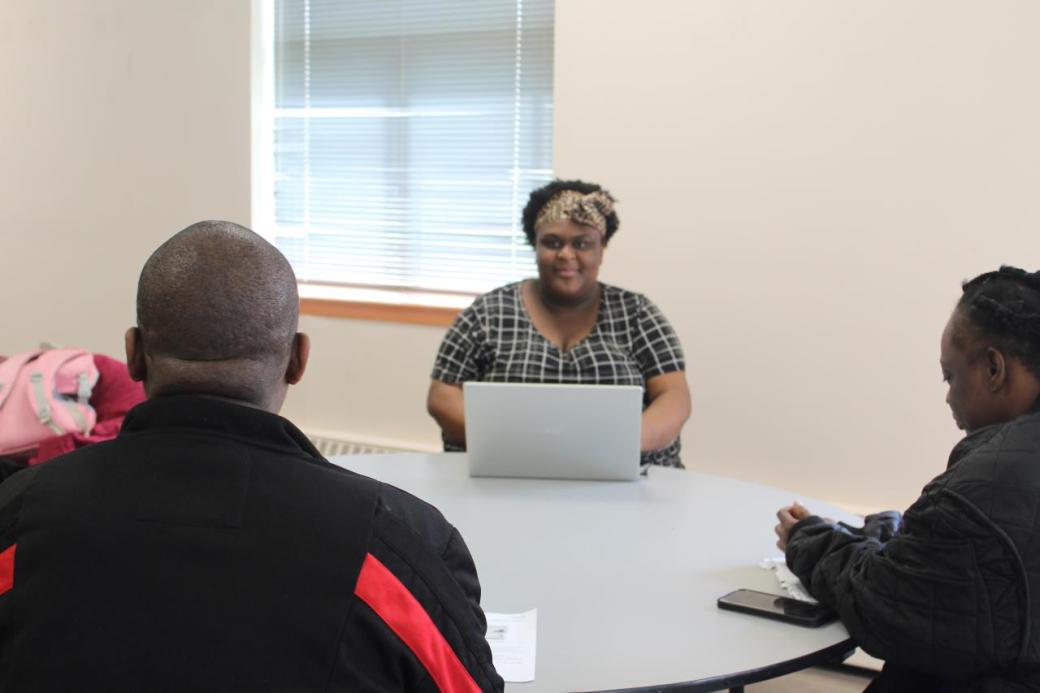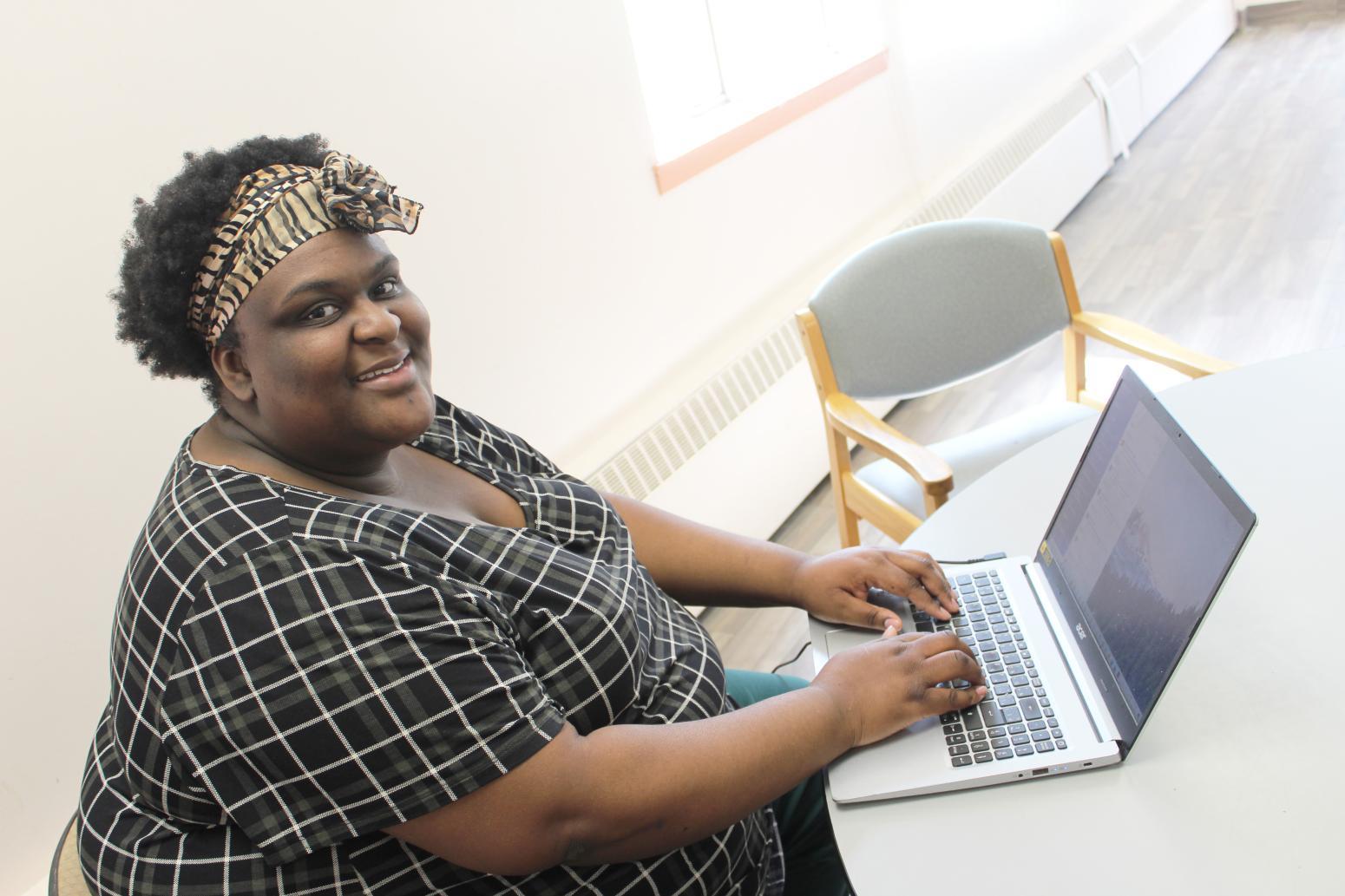Breaking down barriers
Meet Alisha Griffith: promoting financial literacy within TCHC communities
As a TCHC tenant living in the Parma Court community, Alisha Griffith understands their needs first-hand. From a young age, she developed a passion for serving and supporting her fellow tenants across Toronto. As a community leader, Alisha doesn’t hesitate to get involved.
In 2021, Alisha founded Unified We Grow, a non-profit organization, to improve the overall livelihood of TCHC tenants and community members living within limited means. Through her non-profit and with the support of the Canada Revenue Agency (CRA)’s Community Volunteer Income Tax Program, she operates a free mobile tax clinic serving communities in West Toronto. “I believe that everybody should know how to do their taxes, as well as all the different tax slips as they are taxed differently” she said.
Each year, Alisha’s organization provides tax clinic access to individuals and families who face financial adversities or other limitations, providing barrier-free services. Not only does the tax clinic support annual filing, but they also motivate others to understand the tax process and the importance of money management and financial literacy.

Alisha Griffith (centre) counsels tenants on their finances
Clients who access the Unified We Grow mobile tax clinic have the opportunity to participate in workshops. These workshops focus on budgeting, spending, saving, and expanding clients’ financial awareness to build fundamental financial skills. Alisha is passionate about raising financial awareness amongst TCHC communities, sharing concerns about the impacts of knowing how to manage your money. “Financial literacy is so important, I think it's one of the biggest issues why people have spending problems. In our communities, it's not taught at all, especially amongst the Black community.” she said. Financial literacy is just not there and it's something that culturally, we need to instill in our communities, so people know what they're spending, where they're spending, how to save, how to potentially pull yourself out of poverty.”
Alisha expresses the importance of starting early. Calling the CRA before tax season, which runs from February to April, will often result in a quick response, allowing you to get a head start on filing. Some other pointers include:
- Asking the CRA to help guide your tax submission
- Collecting tax documents such as forms, pay stubs, receipts and other taxable incomes and keep them organized throughout the year
- Keeping your taxes current to limit delays and avoid interruption in receiving your tax rebate
Alisha's advice to those feeling overwhelmed is to “Start early, take a step back and write everything down.”
Outside of the tax season, Alisha spends most of her time addressing the growing needs of her community, developing programs and services to enhance and expand practical skills for employability. Asked about her future plans for Unified We Grow, Alisha hopes to expand the organization, “where people can benefit in a way that builds their future, either through economic prosperity or skill building, or by serving their community service hours.”

